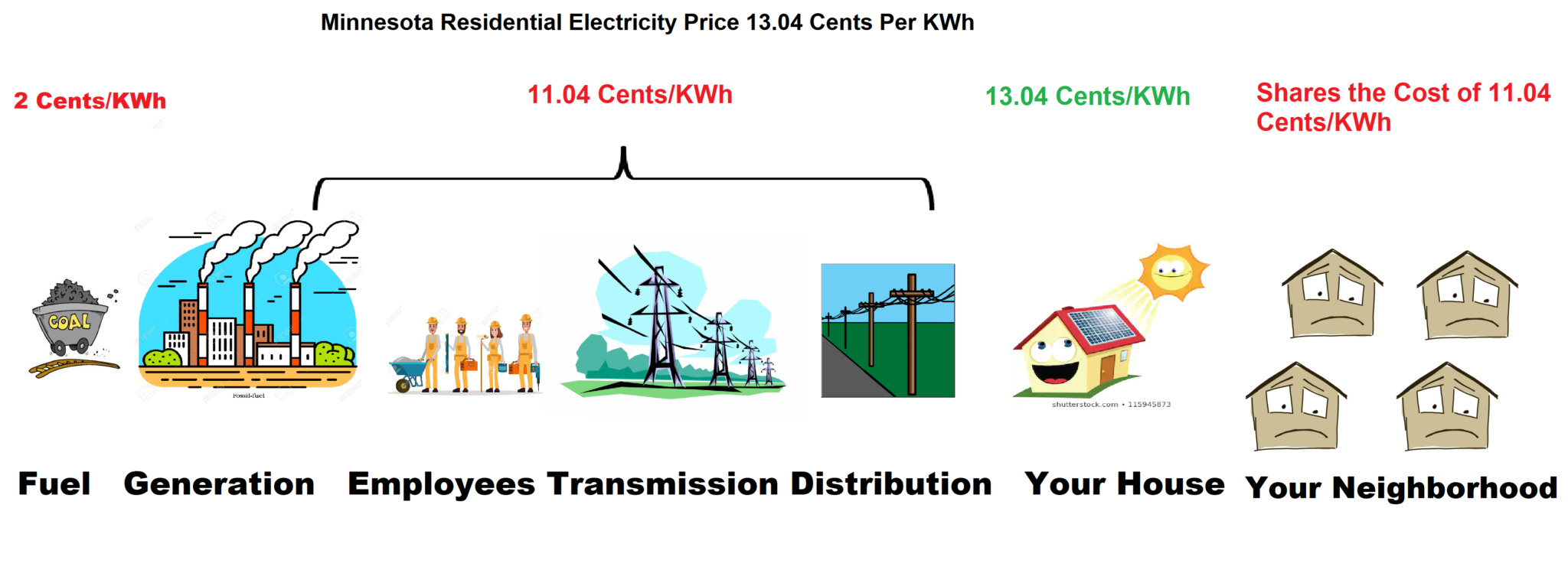Net Metering: How People With Solar Panels Are Picking Your Pocket
Did you know that people with solar panels on their roofs are picking your pocket in more ways than one? Federal subsidies for solar have been increasing your tax liability for years, but people with solar panels are also picking your pocket through a lesser-known policy called net metering.
At its core, net metering pays people with solar panels more for their electricity than it is worth. This is accomplished by paying people with solar panels the retail rate for their power, rather than the wholesale rate. In fact, this is the only reason that solar panels are able to “pay for themselves.”
Here’s how it works.
In 2017, the retail residential electricity rate in Minnesota was 13.04 cents per kilowatt hour (KWh). This means someone with solar panels on their house would be paid the full retail cost of 13.04 cents per KWh. The problem with this arrangement, however, is that this means the people with solar panels on their roofs are not paying their fair share to upkeep the rest of the grid, and these costs are then foisted upon people without solar panels.
While using solar power will reduce the need to burn some fuel, the cost of fuel is a tiny part of the total retail price of electricity, as you can see in the picture below.

The cost of coal in Minnesota is about 2 cents per KWh, or 15 percent of the retail residential cost of electricity. The remaining 85 percent of the retail cost of electricity goes to keeping coal and natural gas plants online to provide electricity during the 82 percent of the time when the sun isn’t shining enough to produce electricity, paying employees of the electric company, transmission lines, and distribution, etc.
When people with solar panels are paid the full retail price of 13.04 cents per KWh, instead of the 2 cents of avoided fuel costs, they are effectively forcing their neighbors to pay the remaining 11.04 cents per KWh to maintain the grid, hence the reason all the houses in the neighborhood who don’t have solar panels are so sad in the graphic.
This arrangement is simply unfair, for two reasons. One, people with panels are generally wealthier than people who don’t have them, and two, people with solar panels are more reliant upon the grid than anyone else because they effectively use the grid twice. They use the grid once to buy power when the sun isn’t shining, and again to sell extra power back to the grid when their panels are actually producing.
In order to promote actual justice, lawmakers in Minnesota should enact reforms to scrap net metering and change the way rooftop solar installations are compensated for the electricity they generate.
Rather than getting 13 cents per KWh, rooftop solar owners should be paid for the avoided fuel cost. Mandating electric companies to pay the retail rate, rather than avoided fuel costs, is simply a wealth transfer from the bottom up, and one would think it would be easy to remedy this environmental injustice.